Hello everyone:
Just FYI, after a personal note, this piece swerves into and then settles on politics. I understand if that sounds exhausting, but here’s the good news: If you’ve already voted, you can cheerfully and guiltlessly peruse this fairly short essay, knowing you’ve done your part.
As always, please remember to scroll past the end of the essay to read some curated Anthropocene news.
Now on to this week’s writing:
My mother’s mother, Sally, was born on All Hallows Eve, 1910, wearing the veil of second sight. A caul - a section of the translucent amniotic sac - covered her face, which foretold a lifetime of clairvoyance. Her birth was attended only by women from her small Maine fishing village, because the doctor 13 miles away in town had to swap his stalled car for a horse.
A caul-borne birth is rare, fewer than 1 per 80,000 births, and has since ancient times signified a special gift, whether good fortune, the ability to protect harvests from witchcraft or, especially, protection from death by drowning. Various caul-related European idioms about being born lucky share a similar phrasing - the French “born with a hat on,” the Polish “born in a bonnet,” and “born in a shirt” in both Italian and Russian. For centuries, cauls were dried and preserved at home as charms, or sold to anxious sailors, or even cut up into strips to be sewn into the clothing of emigrants shipping overseas.
The superstition had its critics. The final line in the 1826 poem "The Sea-Spell," for example, satirizes with a little wordplay a drowning sailor's reliance on his amniotic talisman:
The ensuing wave, with horrid foam,
Rushed o'er and covered all,
The jolly boatman's drowning scream
Was smother'd by the squall,
Heaven never heard his cry, nor did
The ocean heed his caul.
And so you may wonder why I credit this story of my grandmother’s mysterious sixth sense. I might doubt your story too. The answer, on this All Hallows Eve, 2024, is that the gift was as obvious as the phone ringing. As it did shortly after my brother broke his arm in a football practice, with my mother picking up to hear Sally ask, “What’s wrong?” Or as obvious as Dutch, my grandfather, saying, “I don’t even ask anymore,” when suddenly, in the midst of a blizzard pummeling the same house she was born in, Sally asked him to go check on the empty house next door. He bundled up and trudged over to find the pipes had just burst.
According to Wikipedia, some notable caul-borns include Lord Byron, Sigmund Freud, Joseph Smith, and Edna St. Vincent Millay, each with their particular gifts of persuasion and insight. For Sally, though, she might have been more haunted by her unusual relationship with the visible world than glad for it. Which would be one explanation for her reliance on alcohol. Or maybe, in a life that witnessed world wars and spanned an era from horse-and-buggy to the space shuttle, she was merely intelligently anxious about where things were going.
Intuition is not always a gift. An intense sensitivity to the rustling fabric of existence might have been shamanic in the stable, slow-moving green world we evolved in, but feels like a crushing burden in a world that values disruption, consumption, expansion, and noise. Like a mosquito tapping gently but mistakenly into a jugular, we can be blown away. The more we pay attention, the more overwhelmed we feel.
In another beautiful personal essay at
this week, Chloe Hope expressed that perfectly. After a difficult period in her twenties, she writes,I had the distinct feeling that I had undergone open-heart surgery and had been sent back out into the world without having been stitched up. The sensation never faded, and since then, all that I turn my attention towards hurtles instantly through my wide-open sternum. My ribcage has become home to a thousand little Birds. It houses first flights and final words, and it begrudgingly hosts graceless politicians, alongside whom live the bruised and bloodied children of the wars they refuse to end. It holds my fear for the fate of this intolerably beautiful world.
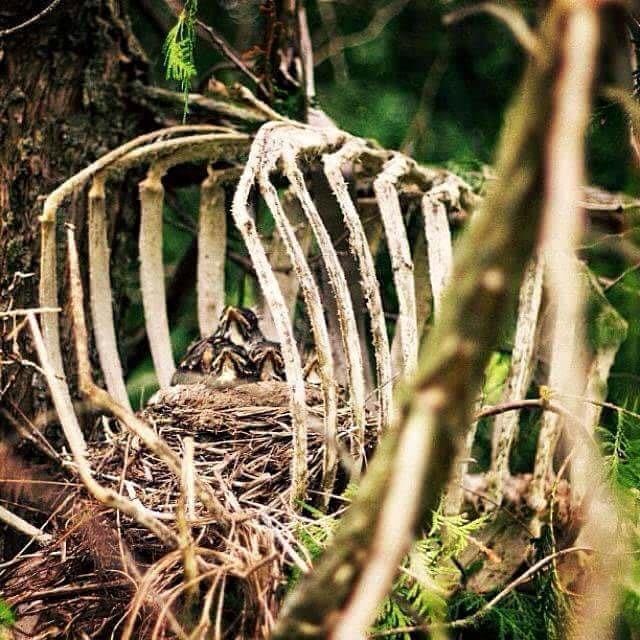
In this last post before the U.S. election, I had planned to resubmit to you “Project 2025 in the Real World,” my brief exploration of the likely catastrophic environmental impacts of a 2nd Trump presidency guided by the misguided Project 2025. Instead, I’ll offer you that link, and find another way to preach to the choir.
Environmental writers, like preachers, are always partly preaching to the choir, and for good reason. Just as the choir likes to drink and dance, nearly all of us eco-sensitives still say Amen while flying over and consuming the burning world. There’s no escape from culpability. The temptations are everywhere, and the green path between them has been paved over. But as leaves quiver and fall from trees turning more skeletal by the day, and as the ghosts of fascism march into the light carrying a cross and wrapped in the flag, I need to address what’s haunting me and my intuition.
First, though, I’ll give away the conclusion to this essay, which happens also to be the best solution to what ails us in this momentous moment: Vote.
Vote for Kamala Harris and Tim Walz, and vote down the ballot from federal to state to local for candidates who are most likely to support environmental protection and climate action. Sadly, in this political moment, the vast majority of those candidates are from a single viable party: the Democrats. (Some third-party candidates are better, I know, but without ranked-choice voting a vote for them in a binary election is a vote for Trump.)
No matter your politics, if you’re reading the Field Guide, I assume you care about preserving and rebuilding the ecological fabric of Earth. I have numerous criticisms, many fundamental, of the Democratic party’s role in creating the crises roiling the living world. Likewise, while Harris is a smart, articulate, sensitive politician, and has a decent mainstream record on environmental issues, she does not seem ecologically minded.
I’d register as an Independent if there was a middle ground between the parties to inhabit. But there isn’t. Voting for Harris/Walz and every downballot Democrat is the only rational, practical decision we can make right now if we want to:
keep science at the center of policy
protect threatened and endangered species and the Endangered Species Act
maintain and build on the Biden administration’s remarkable biodiversity, climate, and clean energy initiatives
retain and strengthen environmental regulations and the EPA
prevent the elimination of even the possibility of good governance - executive, judicial, and legislative - which is perhaps the single most important tool we’ll need to handle the multiple crises of the Anthropocene
On that last point: Given all that should have been done years ago in salvaging our relationship with the natural world, and given how fragile the push for progress is now, this election will have consequences that may echo for centuries. Previous elections over the last few decades did too, but society at large didn’t really understand the consequences (climatic and biological) then.
Now, the impacts of our heat and disruption are increasingly obvious, and legions of voters are motivated by those impacts. But few of us are discussing how the chaos of a 2nd Trump presidency will be antithetical not just to immediate progress on issues of climate and biodiversity but to the basic capacity of the U.S. government to function at national and international levels in coordinating the kind of efficient response that will be essential.
The chaos will be intentional. The reduction in reproductive rights, the rounding up of millions of migrants and citizens, the disintegration of democratic norms, the platforming of fascism, the stifling of media, the mainstreaming of Christian nationalism, the replacement of science with industry talking points, and much more, will leave us reeling. The economy will likely go sideways amid tax cuts for the wealthy, tariff wars, and mass deportations. Climate policy will be set by the fossil fuel companies. And so on.
If all of this sounds alarmist, you haven’t read Project 2025. There’s more detail on all this in “Project 2025 in the Real World,” which I encourage you to read.
In such a future, there will be no sidelines to sit on, which means if you’re thinking of sitting out this election you’re already sitting on the wrong side of history. I know most of you are haunted by the thousands of dead and bloodied children in the war the Biden administration has shamefully abetted, but the alternative is even worse.
Ghost stories teach us to be haunted by the past - unresolved deaths, family trauma, wars that scoured the land - while the bad news that lives like birds in our chest focuses on the now and the near future. But we live in an epoch whose unofficial name (the Anthropocene) signifies the future consequences of our mistakes, and the weight and fear of what may come on a scale we are unprepared to effectively contemplate. Whether by the crackling of heat, fire, and drought or the drowning screams of those smother’d by the squall, there are horrors ahead.
There are also, ahead of us and among us, heroes of empathy, communities of kindness, rewilders of damaged land, farmers of clean food, entrepreneurs of clean energy, teachers of civics, fighters against tyranny, responders to emergencies, and grandmothers with astonishing intuition. If we get this election right, there will be some clear-headed makers of policy as well. Our task in the Anthropocene is to be one of these good people (and the others I haven’t named), or to be supporters of them.
The least we can do right now is vote. And, in this moment, it is the most we can do as well. Those ballots are the talismans we clutch shakily as we sail the turbulent seas and political hurricanes.
We don’t need to pick up the phone and ask “What’s wrong?” Like my grandfather, we don’t need to ask anything at all. We have to suit up and trudge ahead. First stop: the voting booth.
Intuition comes at a price, yes, but the intoxication of ambivalence right now is far more costly. We can see what haunts us, the candle flickering behind its weird orange mask, dead ahead.
To me, the youngest of all the grandkids, Sally was a sweet cookie-making woman and a good, gentle, and somewhat inscrutable grandmother. She spent much of her life in the house she was born in, sitting in a living room looking out through a large picture window at a harbor, watching the boats shift, the tides lift, and the wind play across the surface of the water. I wish that was still the kind of world we have to intuitively navigate, but it’s not. What we see through the veil is still beautiful and worth devoting our lives to, but much harder to read.
Thanks for sticking with me.
In other Anthropocene news:
A brief and unusual Halloween story from Mike Shanahan at the
, about the long and spooky association between ghosts, goblins, and strangler figs. Mike’s book, Gods, Wasps, and Stranglers, “tells how fig trees have shaped our world, influenced diverse cultures and can help us restore life to degraded rainforests.” Here’s what he says about the strangler figs:No trees are home to a more motley mix of supernatural creatures than the strangler figs, whose eerie aerial roots are adept at seizing imaginations in their grip. Diverse cultures around the world say these trees shelter angels and fairies, gods and ancestral spirits, ghosts and other malevolent creatures.
From the Post (assuming you haven’t justifiably canceled your subscription), a great piece on the beauty, variety, and importance of moths. A WaPo team joined a “mothing” crew in the Mojave Desert, and “discovered just how easy it is to fall in love with an unloved insect. And why ‘mothing’ may be the best way to discover the miracle of biodiversity in your own backyard.”
From the Revelator, the war in Ukraine is an ecological as well as humanitarian disaster, but scientists are doing what they can to gather data and protect the environment, including offshore, where a unique Black Sea ecosystem persists. A marine ecologist articulated the attitude we should all have in response to our war on the natural world: "“Morality and ecology are two things that go very close together.”
From Hakai, an excellent question every climate campaigner should be thinking about: “Is Deforestation Supercharging Cyclones?”
From Australian Geographic, new research determined exactly how diverse plant life on islands is, and thus why these extraordinary biodiverse habitats need protection. 21% of all plant species on Earth are endemic to islands, “meaning they occur nowhere else on the planet.” This is especially remarkable considering that islands make up only 5.3% of Earth’s land area.
From Vox, it turns out (unsurprisingly) that fish farming has a much larger ecological footprint than has been advertised. This matters for many reasons, not least that humans now eat more farmed fish than wild fish. For decades, the selling point of farmed fish is that it provides a much-needed respite from overharvesting at sea, but 19% of wild-caught fish are harvested to feed farmed fish, especially salmon, trout, and shrimp.
In other words, what was supposed to relieve pressure from overexploited oceans has become a new source of its exploitation. According to a new study published in Science Advances by a team of researchers from the University of Miami, New York University, and conservation group Oceana, fish farming might kill far more wild-caught fish than previously thought — a finding that throws the aquaculture industry’s sustainable branding into question.
From the Global Nature Beat and the Revelator, two good long lists of conservation news that you probably won’t find anywhere else. Among many other topics, the Revelator list spotlights research on leopards and on sagebrush conservation, while
at his amazing Global Nature Beat highlights the sixteenth conference of parties to the UN Convention on Biological Diversity (COP16) happening right now in Colombia.


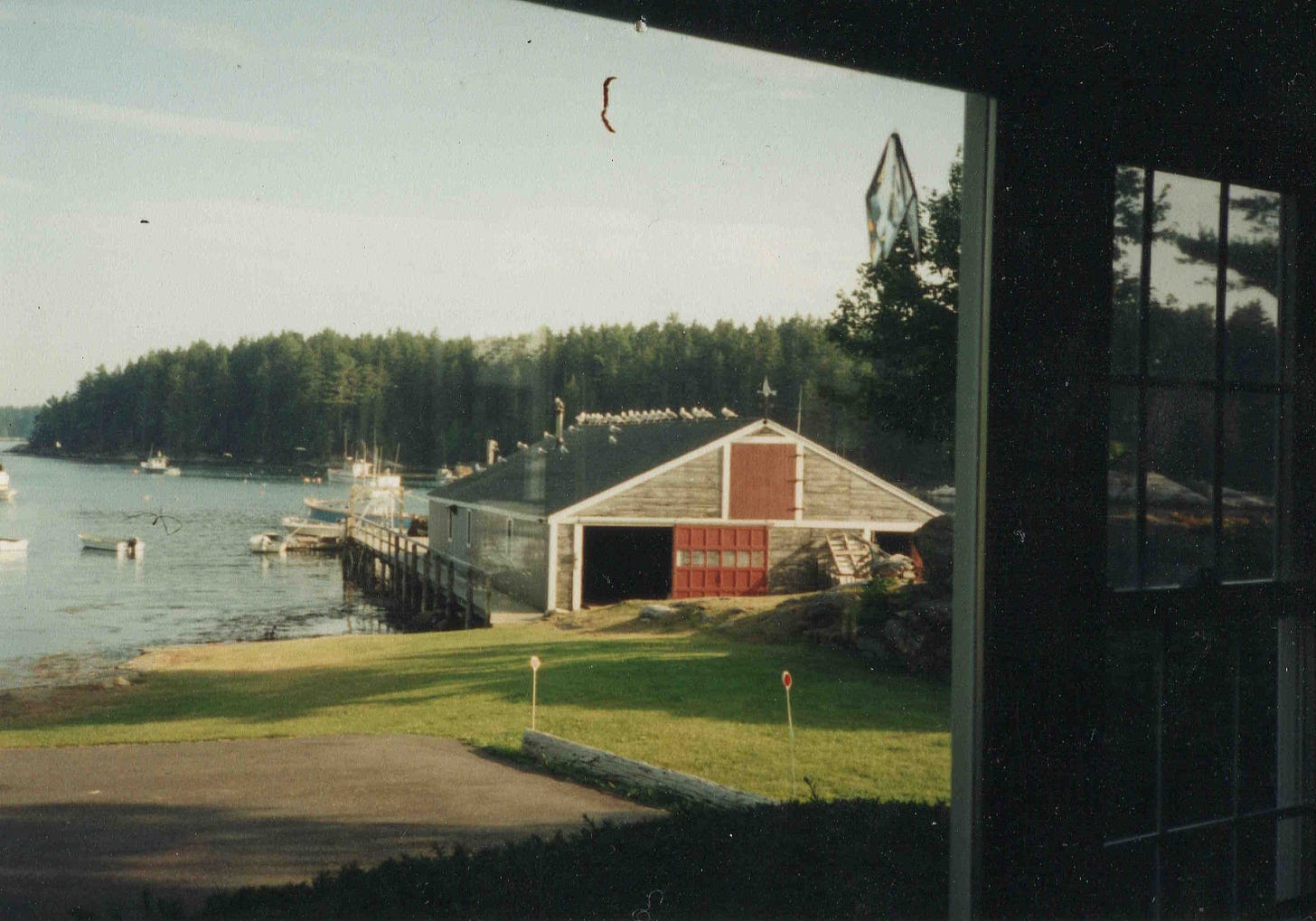
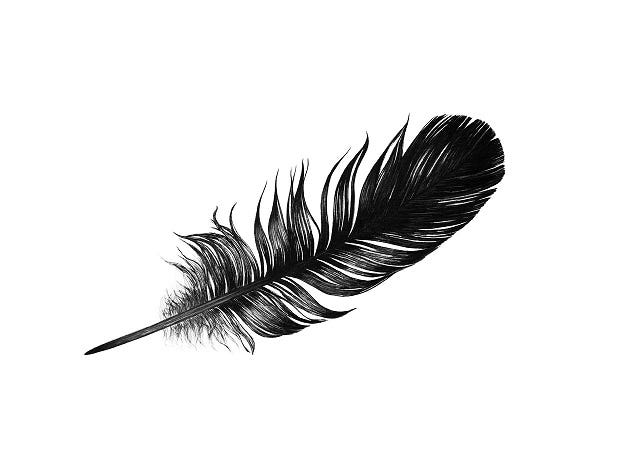
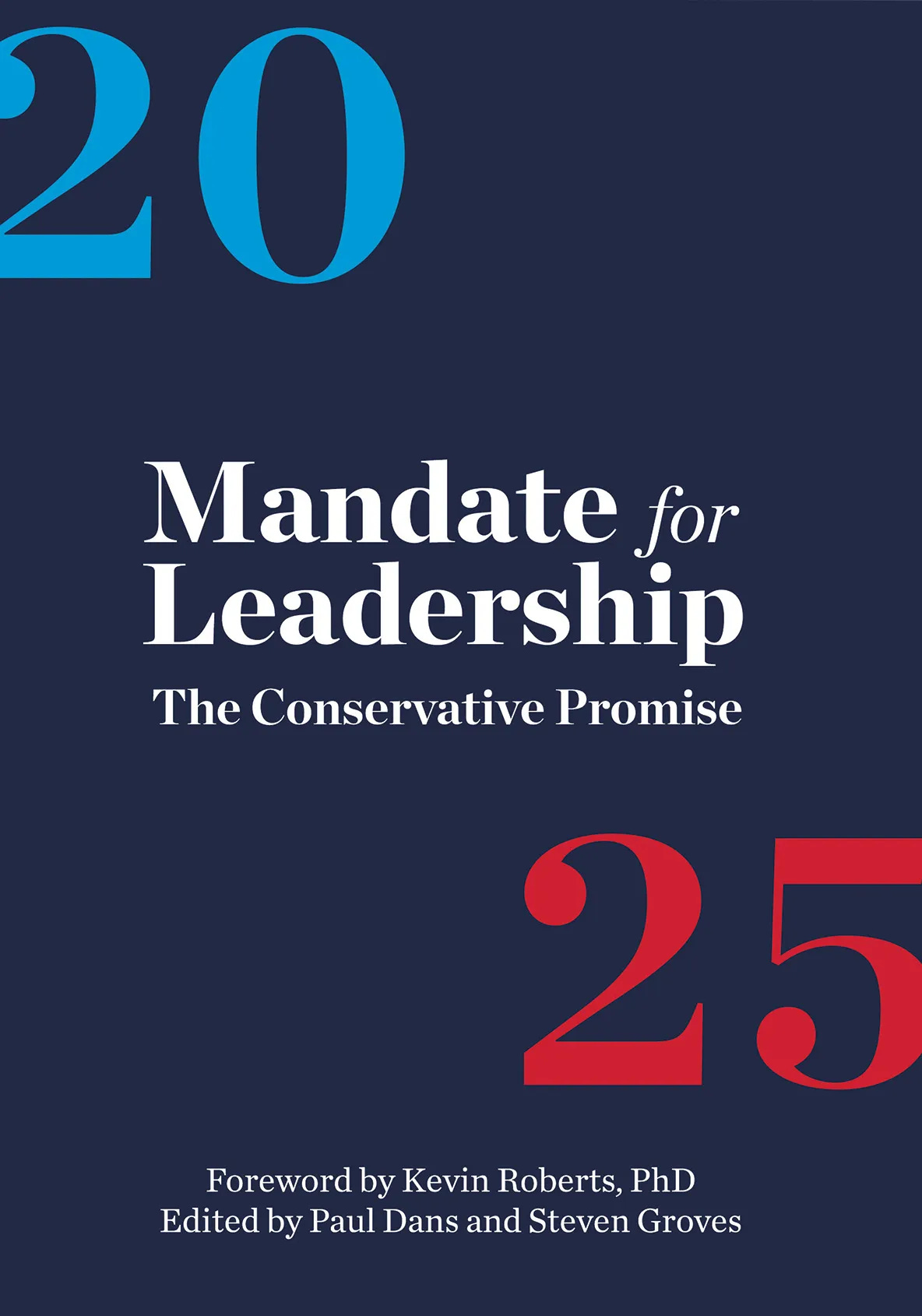
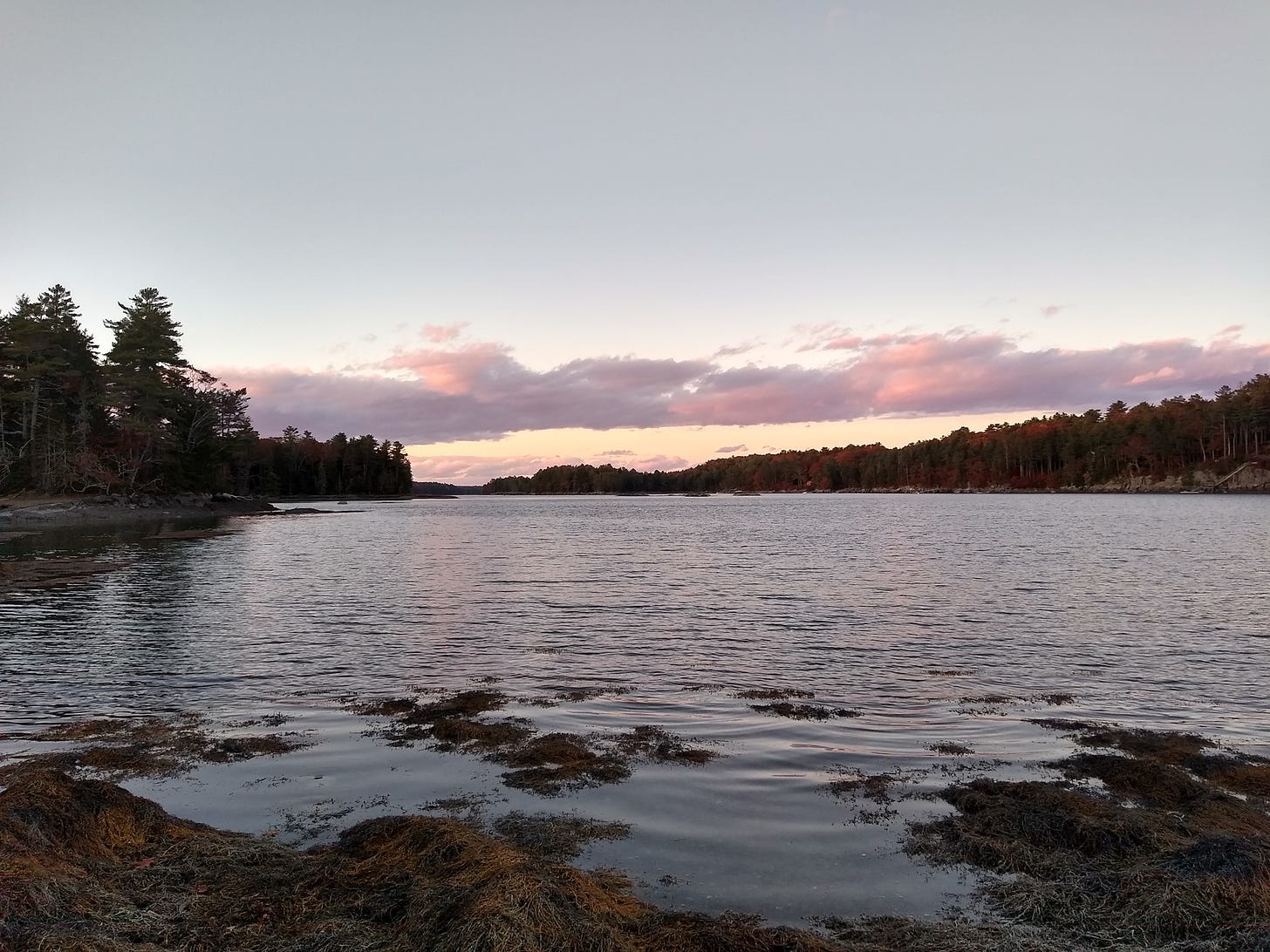

A beautiful and troubling essay, weaving together, finding connection in, many disparate elements. It's the way we think, the way we make sense of this sometimes troubling world, this truly alarming age, the Anthropocene. Our senses tell us something is wrong, our intuitions tell us things are out of kilter, but our lonely and disconnected imperious intellects can ignore or even veto these presentments. And so things proceed to bitter ends.
I have already voted. Straight Democrat up and down ballot. In this age of misinformation and clamorous claims, like flocks of contending gulls, it was best to steer by intuition. I urge everyone to do the same but don't discard your intellect-just think deeply and you arrive in agreement with your gut sense: Trump and his cadre are not remotely a path to anything good, they will make things worse.
.
I read recently that environmental scientists are less likely to vote. That seems so backwards to me and so sad - I can only imagine it is due to hopelessness. Thank you for another wonderful story. The new thing I learned today was about caul. I love the story of your grandmother. Thanks so much for sharing and please keep writing.